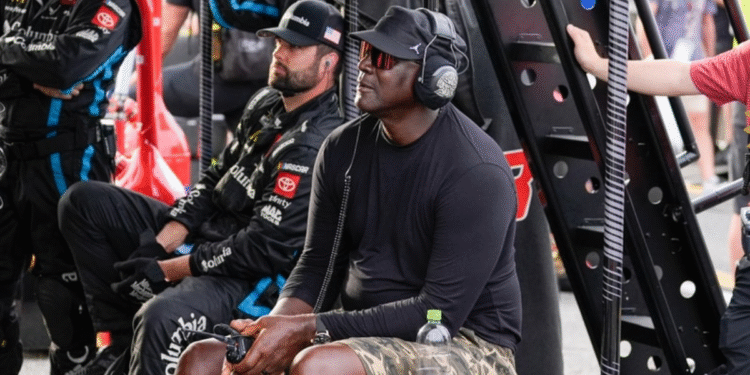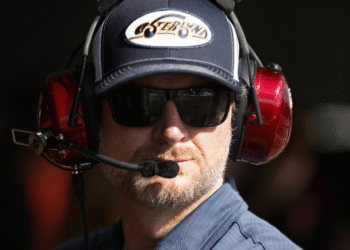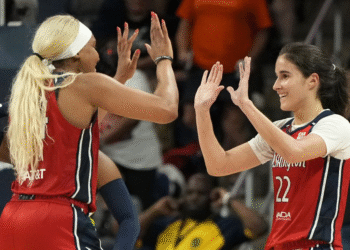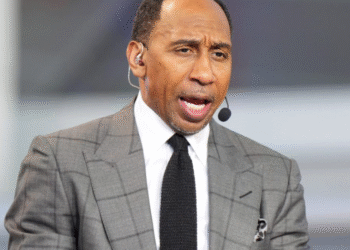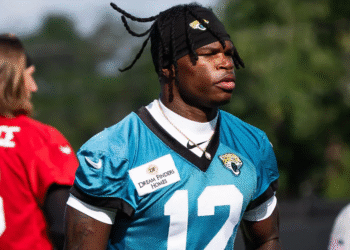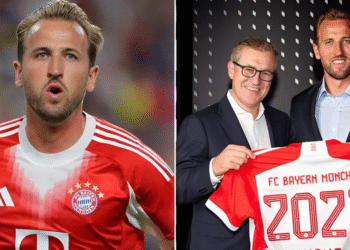A legal battle is stirring concern within the NASCAR world, especially after a federal judge recently expressed deep unease over a lawsuit involving two major racing teams—23XI Racing and Front Row Motorsports (FRM)—as well as NASCAR itself. The case centers around a contract dispute that could impact how teams negotiate and operate in the future, and it’s creating waves not just in the legal system but also across the racing industry.
The issue started when McAnally-Hilgemann Racing (MHR), a team that primarily competes in the Truck Series, filed a lawsuit accusing FRM of breaking an agreement. According to the court documents, MHR claims that they had a deal in place for a technical partnership with FRM, which later backed out. MHR is alleging breach of contract and seeking compensation for the damages they say were caused by the broken deal. This legal action brought attention to some of the behind-the-scenes workings of NASCAR and raised concerns about team dynamics, contracts, and fair dealings.
However, the lawsuit took a more serious turn when court filings revealed communications and actions that potentially involve not just FRM but also 23XI Racing and NASCAR itself. That’s when a federal judge openly said in court, “This scares me to death,” highlighting just how serious the implications of this case could be. The judge is worried that if the claims are proven true, it could set a dangerous precedent in how NASCAR teams do business and how the league maintains fair competition and governance.
One of the most troubling aspects raised is the allegation that FRM may have misled MHR by promising a partnership that they never intended to fulfill. There are also suggestions that NASCAR officials might have influenced or supported this sudden change in direction. If proven, this could mean that NASCAR is not just a neutral governing body but may be playing favorites or getting involved in team decisions—something that would deeply affect the trust teams place in the league.
In the middle of all this is 23XI Racing, the team co-owned by NBA legend Michael Jordan and NASCAR driver Denny Hamlin. While 23XI is not a direct party in the lawsuit, they are being drawn into the conversation because of possible connections to FRM’s decisions. The judge didn’t accuse 23XI of any wrongdoing but did express concern about how interlinked the decisions of teams and NASCAR’s influence may be. This raises major questions about the transparency and fairness of team relationships and NASCAR’s internal policies.
The legal documents are also bringing up text messages and emails that could point to backdoor conversations and power plays that are not typically visible to the public or even to other racing teams. That’s why the judge is paying close attention. The lawsuit might reveal whether teams are truly acting independently or if larger teams and NASCAR’s leadership are pulling strings behind closed doors.
The broader concern is that if MHR’s allegations are proven, it might show a pattern of favoritism and manipulation in NASCAR, which would be a serious hit to the league’s reputation. NASCAR has always been built on the idea of fair racing and giving smaller teams a shot, even if they don’t have the biggest budgets. If that trust is broken, it could discourage new teams from entering the sport and damage relationships between existing teams.
So far, NASCAR has not made any public comments about the case. FRM has denied the allegations and is preparing to fight the case in court. 23XI has also remained silent, as they are not officially part of the lawsuit. But as the case moves forward, more information is expected to come out, and the judge has made it clear that she wants a thorough review of all parties involved.
This lawsuit could turn into a major moment for NASCAR, especially if it leads to changes in how team agreements are managed and how the league oversees such partnerships. It also puts pressure on NASCAR to prove that it’s acting fairly and without bias. The racing world will be watching closely in the coming months, as the outcome of this case could shape the future of the sport in significant ways.
